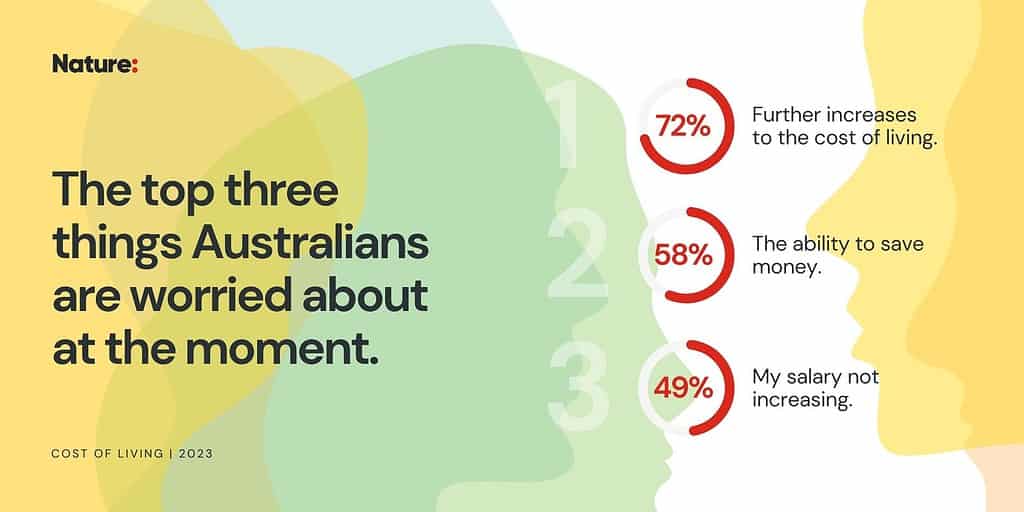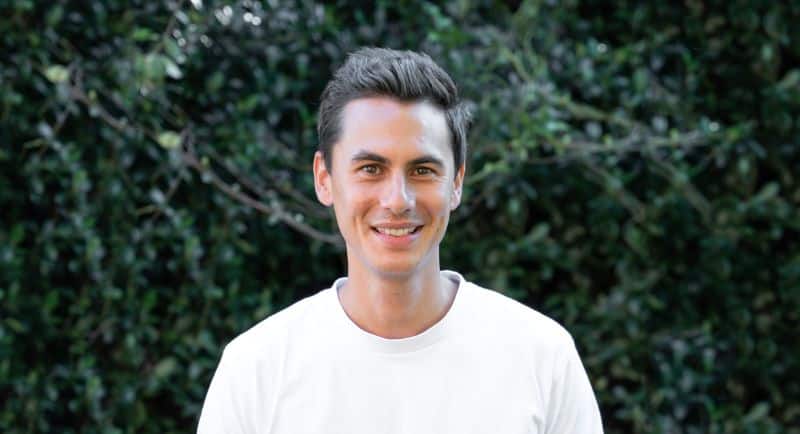A survey by strategic insights consultancy Nature has found Australians’ mental health demands new focus as the rising cost of living is causing 34% of the nation to feel extremely stressed or anxious and 36% to directly acknowledge it is taking a toll on their mental health.
Nature’s latest research was resented to a crowd of over 100 marketers and insights professionals at Sydney’s Museum of Contemporary Art and provides important practical insights for brands as they look to drive meaningful connections with a highly divided nation.
The latest round of data from the ongoing Cost of Living survey strongly suggests a two-speed economy emerging as a direct result of inflationary and interest rate pressures, which can be broken into four distinct segments.
Two segments are concerned about the rising costs of living, the Struggling and On Alert (comprising 55% of the nation), while the remaining two – the In Control and Coasting – comprise 45% and are less concerned and making minimal changes to their daily expenditure and consumption patterns.
Struggling: 30% of the adult population
• Most concerned about the rising cost of living and often stress about affording their regular expenses (77%). This makes them anxious and is taking a toll on their mental health. They are doing everything possible to make ends meet, from finding lower priced substitutes on supermarket items to delaying health treatments and cancelling subscriptions and memberships.
On Alert: 25% of the adult population
• Also very concerned about the rising cost of living, however are coping better mentally than the Struggling segment. They are not particularly confident in their financial stability, with 69% saying losing their job right now would break them, and they are making changes with this in mind: shopping less for non-essential items and postponing travel plans.
In Control: 25% of the population
• Less concerned about rising costs and more confident in their financial stability to handle the future. They’re making few changes to their expenditure and consumption, but empathise with those less fortunate and strongly believe the Government should do more to help those who need it most (87%).
Coasting: 20% of the population
• Least concerned and making minimal sacrifices. They feel least affected and are willing to spend more to maintain their current lifestyle (31%). Unlike the In Control segment, the Coasting feel it’s the individual’s responsibility to overcome their troubles, with 54% believing those struggling financially could do more to help themselves, versus 25% of the rest of the nation.

Nature’s segmentation was developed via a representative survey of 1,000 Australians on a range of attitudes relating to the cost of living crisis.
While the segments are primarily differentiated by their mindsets, Nature also analysed six months of actual historic transactions across the segments, revealing those more concerned have spent an average of 8% less across a range of categories since the beginning of 2023, while those in the less concerned segments have actually increased their spend.
James Jayesuria, Nature partner and managing director, Sydney, said: “This nuanced understanding of how the cost of living crisis is playing out presents clear opportunities for brands, particularly those occupying either a value or premium position within their respective categories. It does, however, present a much more complex challenge for mainstream and mass brands that wish to neither devalue nor ostracise the millions of Australians suffering growing levels of hardship.
“As such, there is no more important time for brands to be crystal clear on what they stand for, the field upon which they play, the experience they wish to offer their customers, and the product and pricing architecture they plan to use to both attract and retain customers as the crisis evolves.”
Aliya Hasan, nature head of strategy, said: “This new research suggests we really need to rethink the rulebook of how to manage brands in a financial crisis – it’s so much more complex than a one-size fits all rule. With purchase behaviour in such a state of flux, balancing the today and tomorrow has never been more nuanced.”
Earlier this year, Nature welcomed six new additions to its Melbourne office – Antony Lakey, Charlotte Summers. Simon (Si) Hunt, Shawn Christensen, Ruhi Patil and Ernest Fu.
Read more: Nature welcomes six new additions to its Melbourne office
–
Top image: James Jayesuria
